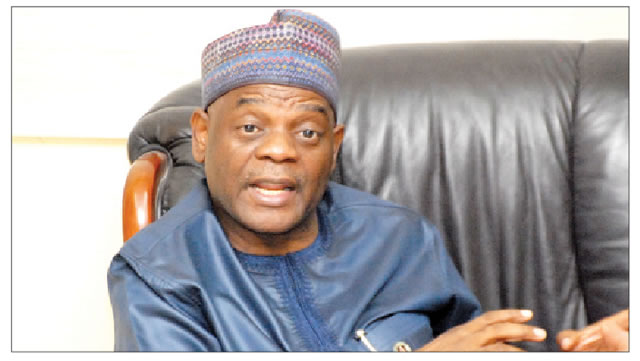The Executive Secretary of the Tertiary Education Trust Fund (TETFund), Sunday Echono, has sounded a warning over the increasing encroachment of politics and corruption into the appointment of Vice Chancellors in Nigerian universities.
This growing trend, he argues, poses a significant threat to the integrity and quality of higher education in the country.
Speaking passionately at the 36th convocation lecture of the Federal University of Technology, Owerri (FUTO), Echono painted a troubling picture of how political interference and financial inducements have turned a once-honorable process into a battleground for influence and favoritism. He lamented how the sanctity of selecting university leaders has been eroded by external forces eager to exert control over these institutions.
Echono described the role of local politicians in influencing university administration, pointing out that their sponsorship of candidates for Vice Chancellor positions has increasingly localized and compromised university operations. He expressed dismay at how political affiliation now outweighs merit and academic integrity in the decision-making process. “The sponsorship of Vice Chancellor selection processes by politicians has made university administration increasingly local,” he remarked.
The TETFund boss also revealed the financial undertones of these appointments, which have turned them into lucrative ventures. Members of governing councils, once entrusted with safeguarding institutional integrity, are now targeted by individuals offering financial inducements in exchange for favorable decisions. Contractors, seeing the financial stakes involved, have also entered the fray, backing candidates for Vice Chancellor positions in hopes of securing lucrative procurement contracts once their preferred candidate assumes office.

Echono did not shy away from highlighting the depth of the problem, pointing to how principal officers wield significant power, particularly in procurement and payment processes, creating fertile ground for corruption. “Contractors have been known to sponsor candidates for Vice Chancellor in return for patronage,” he noted, signaling how deeply entrenched these practices have become.
To combat this crisis, Echono called for urgent reforms to restore credibility and meritocracy in the leadership selection process. He emphasized the importance of granting universities greater autonomy to shield them from undue political influence. Strengthened independence, coupled with transparent and clear criteria for appointments, is essential, he argued, to rebuild trust in the system. “The autonomy of universities needs to be strengthened to minimize political interference,” he asserted.
Echono also urged stakeholders to ensure accountability at every stage of the selection process, reinforcing the need for integrity and fairness in choosing those who will steer the future of education in Nigeria.
In recognition of his significant contributions to FUTO’s development, the university community presented Echono with the “Macho Man” statue—a symbolic gesture honoring his dedication to advancing the institution. His speech and the accompanying honor underscored the urgency of addressing the challenges he highlighted, as stakeholders work to safeguard the future of Nigerian universities from the corrosive effects of politics and corruption.



